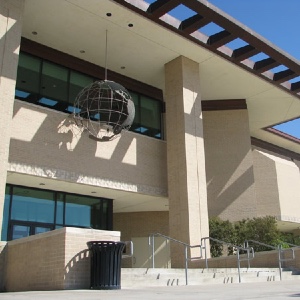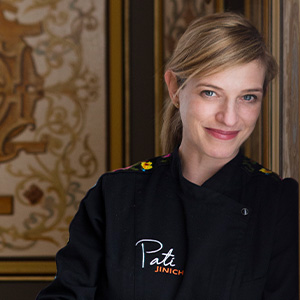Dustdevil Diversity Spotlight: Yasmin Lyla Shariff
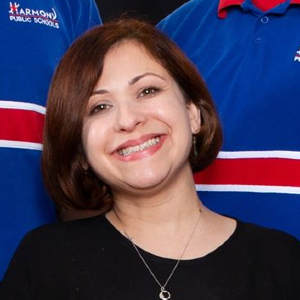
This is part of a series of interviews highlighting diversity at TAMIU. This interview features Yasmin Lyla Shariff, English Language Arts teacher at Harmony School of Excellence. She earned her MA in English this August at TAMIU and her BA in English in 2015, also at TAMIU.
Teaching Students Empathy by Reading Globally and Universally
Tell us about yourself. Where are you originally from and why did you choose to attend TAMIU?
I am originally from Chicago, Illinois. I moved to Laredo seven years ago and finished my BA in English at TAMIU in 2015. Then, I continued to move on to my MA in English. I may have started going to TAMIU as an extension of practicality because I was living and working here with my son. But by the time I finished my BA, I desired to achieve my MA at TAMIU because of the inspiring professors that facilitated my own passion for literature and writing.
Tell us what you have been up to since graduating from TAMIU.
I technically finished my MA in May of 2020 with the defense of my master’s thesis. However, since I have been working from home in quarantine, I have been home with my family reading, writing and dreaming of the next step to take on this journey.
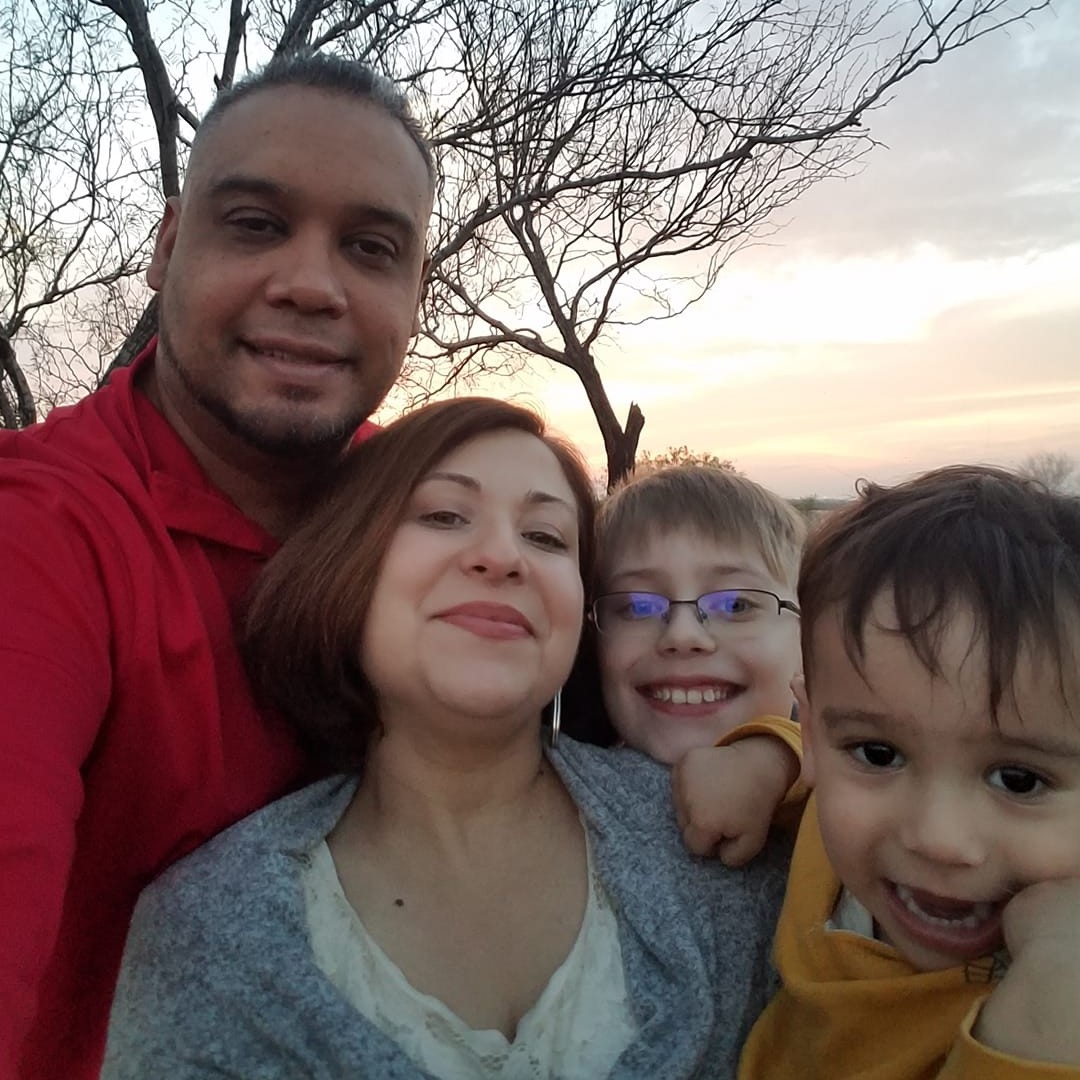
Can you share with us your experience as a public school teacher in Laredo?
I have been an English teacher in Laredo for the past four years. I teach many students who are learning English and it’s a very humbling experience since my Spanish is not very good. I am struggling to learn it but have become more fluent. By finding authors like Sandra Cisneros and Richard Blanco that use many Spanish words in their writing, however, many of my ESL students feel seen and inspired. I can relate to my students who come from homes with immigrant parents as my father is a Pakistani immigrant. I understand how it feels to walk the tight rope of two cultures while trying to find your own path.
What are some of the aspects of your culture or tradition that you celebrate or appreciate the most and how meaningful are they to you? Also, in your opinion, what are some of the notable contributions by people in the culture or traditions that you represent?
I am of several cultural backgrounds as my father is a Pakistani immigrant and my mother is Jewish American whose grandparents were Polish and Ukrainian. I consider myself more affiliated with people and ideas based on their morals and values rather than their nationality or ethnicity.
I do love many things about both my parents’ cultural heritage that resonate with me. One is the poetry of Central Asia, Iran and the Subcontinent. For example, Rumi, Hafiz, Iqbal and Tagore. Much of this poetry is universally spiritual and liberating. Also, my paternal grandfather wrote poetry and to this day, family members recite his poetry at family gatherings. I learned this years after I was already writing my own poetry, but this inspired me to continue in the tradition.
I also love many Jewish writers, though some of them may be less defined by their ethnicity or religion. For example, Sartre’s ideas have been very influential in my life, like living in good faith versus bad faith. I have been reading a lot of nonfiction narratives about the Holocaust. Currently, I am reading a book called “The Lost,” by Daniel Mendelsohn that has inspired and influenced my own search for my own maternal family lost in the Holocaust. “My Hundred Children,” by Jewish Polish author Lena Kuchler-Silberman is also a narrative that I am currently reading and really loving. I also have really gotten into the graphic novel story of Magneto, (based on comics originally by Stan Lee), who is a character who was shaped by his experiences surviving the Holocaust.
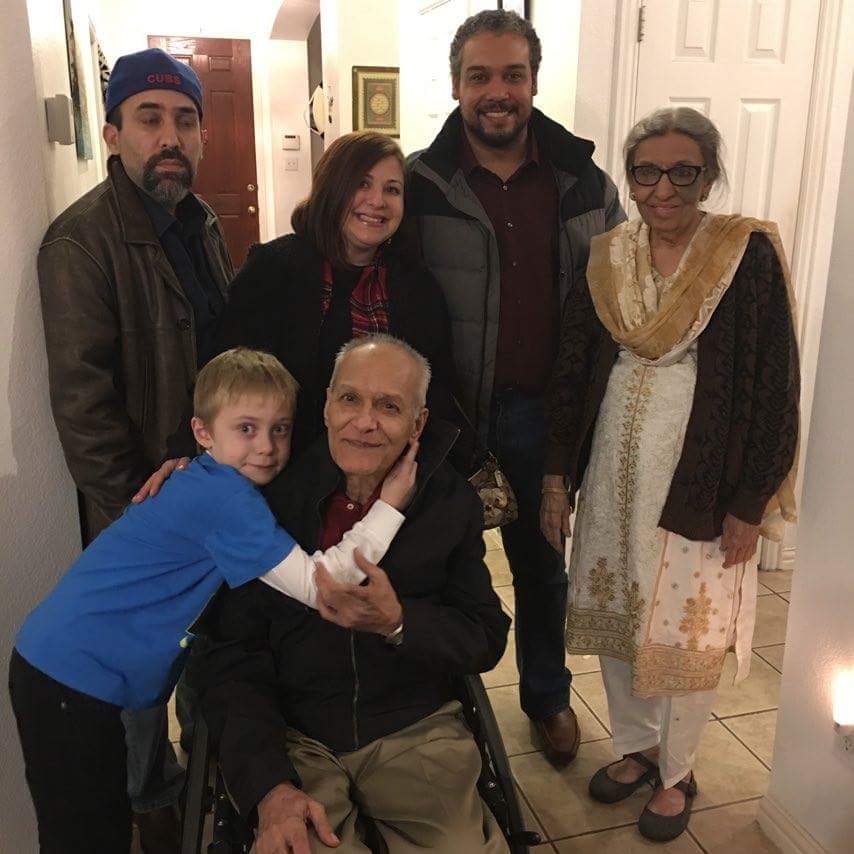
Who has been your greatest inspiration and why?
I can’t say just one individual is my greatest inspiration. There are so many. First and foremost, my father. He is a very open minded, gentle and compassionate individual. He taught me that all religions are different paths to God. I learned from him to love humanity. Civil Rights activists and humanitarians like Martin Luther King, Jr., for his vision and love for humanity and profound individuals like Eleanor Roosevelt, for her open mind and outspokenness. I have been so inspired by Elie Weisel and Anne Frank for the voices they found that became lights for others for generations in such darkness. I also am deeply inspired by Siddhartha and his realizations about escaping pain and suffering in life. Currently, one of my heroes and inspirations is Malala Yousafzai for her courage and scope of understanding.
What are your hobbies?
I write poetry and journal in my free time. I love to read, usually I read one fiction book and one nonfiction book at the same time and alternate. I love to travel, which has been suspended since the pandemic and I am left to making plans for future trips as a new hobby.
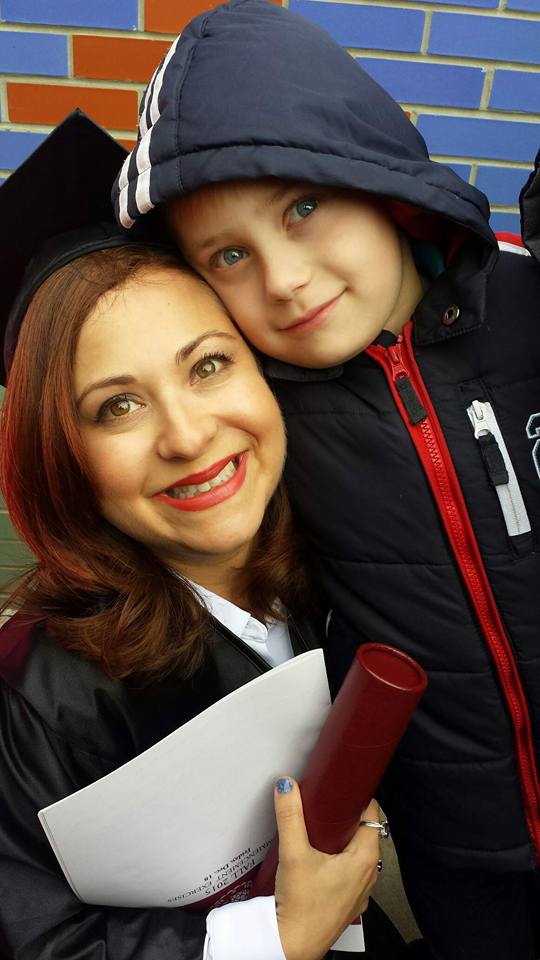
What’s your proudest accomplishment to date?
I am very proud of completing my MA, especially my thesis.
As a teacher, do you incorporate concepts of diversity, equity and inclusion in your lesson plans? Why?
I incorporate diversity and inclusion in my classes by reading from a large variety of writers with my students. By exposing my students to people of a multiplicity of ethnicities, religions and genders, I give my students an opportunity to connect with and hopefully empathize with people who may be labeled very different from them but actually are very relatable. The author, Chimananda Adichie, talks about the danger of the single story, and that hits home hard. When we do not have a narrative in our mind for other cultures, we can stereotype and even hurt others. Critically thinking about narratives helps people go beyond prejudices and have empathy. What can the world need more than that?
Tell us about your experience at TAMIU and the challenges you’ve experienced in obtaining both your University degrees while working full time and raising children.
While it certainly is challenging to finish degrees while working full time and taking care of children, it is also very rewarding. There were times when I wanted to stop working on my MA or my thesis, but you learn to rest and not quit. It often means feeling and looking pretty rundown and not having much of a social life but at the end of the day, I feel I am being the best example for my kids that I can be by achieving my dreams.
How do you feel your contributions impact the community and world around you?
I feel that being a teacher is a very impact job. I feel we impact students positively with the things we introduce to them, but also through the loving energy we bring to the classroom.
Tell us about ideas that are important to you.
The Golden Rule, to treat others as you would like to be treated. But to couple that with trying to see things from others’ perspectives, to empathize. In my opinion, the best way to become a more empathetic person is by reading globally and universally. I believe that literature changes the world.
We can gain more empathy and love for others though a polyphony of narratives. Being able to express our own narratives also is very cathartic and helps us gain agency in life. In fact, that’s what my master’s thesis is about, the importance of diverse matriarchal narratives in literature of the Americas.
It all goes back to stories and critically thinking about narratives. Stories help people go beyond prejudices and have empathy for people different than them. Narratives also help us reimagine ourselves to be bigger, kinder. Another idea very important to me is Joseph Campbell’s idea of the hero’s journey. In fact, I center the classes I teach around how every story, no matter the culture or time, has a hero’s journey in it. We all are living the hero’s journey -- and that connects us all universally.
Tell us what you’re doing today academically or life-wise and what your future plans are.
To continue to teach high school English, to teach college-level English courses in the near future and to continue to write poetry for myself. I am also trying to decide what to write about next for publication and considering something in regards to Holocaust studies. One thing is for sure, all this time in quarantine gives one a lot of time to dream and reimagine one’s life.
Is diversity, equity and inclusion important at university campuses, in the workplace and overall? Why?
Nothing is more important that human dignity, to treat each other with fairness, respect and love. While of course that includes cultural diversity to mind and even LGBTQ issues, that also means inclusion for individuals different than your average college student in any way. As a working mom who went back to school and got my BA and MA, I know how challenging and stressful it is.
I was blessed with some very caring and insightful people in my life that helped me along the way, but some were not. Luckily, I have a very supportive and wise partner, who is originally from Venezuela, and I am a very stubborn person. I believe, however, that more support and safety nets should be put in place so great minds do not fall through the cracks.
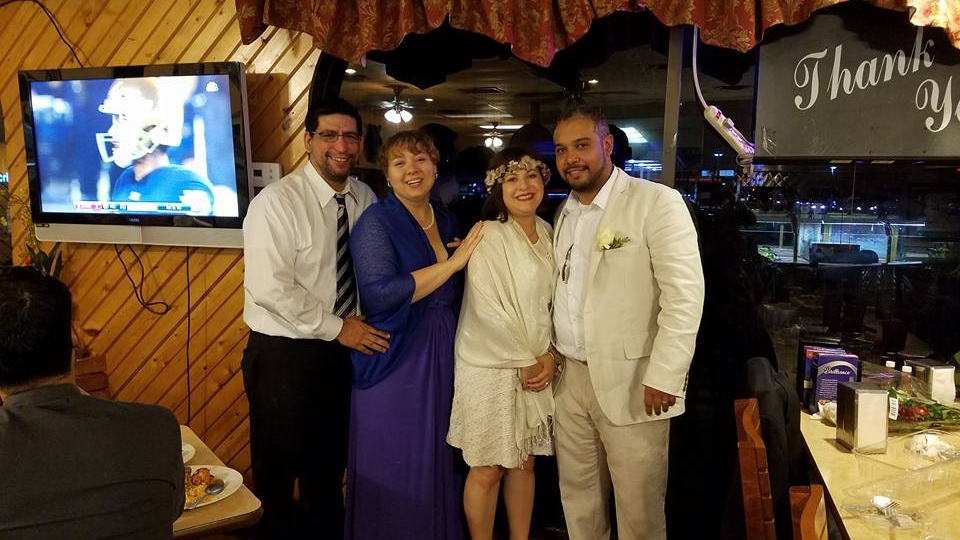
Newly-wed Shariff and her partner

